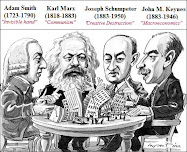From: BBC Vietnamese
Amnesty 'hết sức lo ngại' vụ ông Định
"Ai cũng có quyền có ý kiến và thể hiện ý kiến trước công chúng một cách hòa bình ngay cả trong trường hợp các ý kiến đó chỉ trích chính quyền."
---
From: BBC Vietnamese
GS Pháp bảo vệ Nguyễn Tiến Trung
BBC: Vậy thì ông có nghĩ rằng trong môi trường Việt Nam hiện tại, những việc làm của Trung là cần thiết không?
Philippe ECHARD: Những người có trách nhiệm ở Việt Nam hãy nghe những lời phát biểu của Trung, nó rất bổ ích. Việt Nam vẫn đi trên con đường chính trị cứng nhắc, độc đảng (monolitique), đây là một quốc gia không tiến hóa được (évoluer).
Không nên nghĩ rằng cho phép mở cửa kinh tế mà không có sự tự do cá nhân đi kèm theo. Đây cũng là một sai lầm nghiêm trọng mà Trung Quốc cũng vấp phải. Tôi nghĩ rằng hai nước này cần phải có sự phát triển tự do cá nhân. Nếu không thì sẽ gặp phải những khó khăn nghiêm trọng.
---From: Wikipedia
Freedom of speech is the freedom to speak freely without censorship or limitation.
The right to freedom of speech is recognized as a human right under Article 19 of the Universal Declaration of Human Rights and recognized in international human rights law in the International Covenant on Civil and Political Rights (ICCPR).
The ICCPR recognizes the right to freedom of speech as "the right to hold opinions without interference. Everyone shall have the right to freedom of expression".
One of the most notable proponents of the link between freedom of speech and democracy is Alexander Meiklejohn. He argues that the concept of democracy is that of self-government by the people. For such a system to work an informed electorate is necessary. In order to be appropriately knowledgeable, there must be no constraints on the free flow of information and ideas. According to Meiklejohn, democracy will not be true to its essential ideal if those in power are able to manipulate the electorate by withholding information and stifling criticism.
---
From: Blog Everywhere Land
"Những người đã giành độc lập cho Tổ quốc chúng ta tin tưởng rằng, mục đích sau cùng của Nhà nước là giúp cho con người tự do phát triển những tố chất của bản thân. Và rằng trong chính phủ, sự thiện chí đối thoại phải chiến thắng bạo lực hung tàn. Họ trân trọng tự do như là một mục tiêu, và cũng là phương tiện để đạt được mục tiêu đó. Họ tin rằng tự do chính là bí mật của hạnh phúc, và lòng dũng cảm là bí mật của tự do. Họ tin tưởng rằng: được quyền suy nghĩ như mình muốn và được nói lên những gì mình suy nghĩ là quyền bất khả phân, và là chìa khóa để tìm ra chân lý chính trị. Rằng nếu không có tự do ngôn luận, những cuộc hội họp chỉ là vô bổ. Rằng thông qua tranh luận, những ý tưởng học thuyết điên rồ sẽ bị đánh bại. Rằng kẻ thù lớn nhất của tự do chính là những con người bất động, vô tâm. Rằng tự do ngôn luận là nghĩa vụ chính trị và giá trị căn bản của chính quyền Mỹ..."




